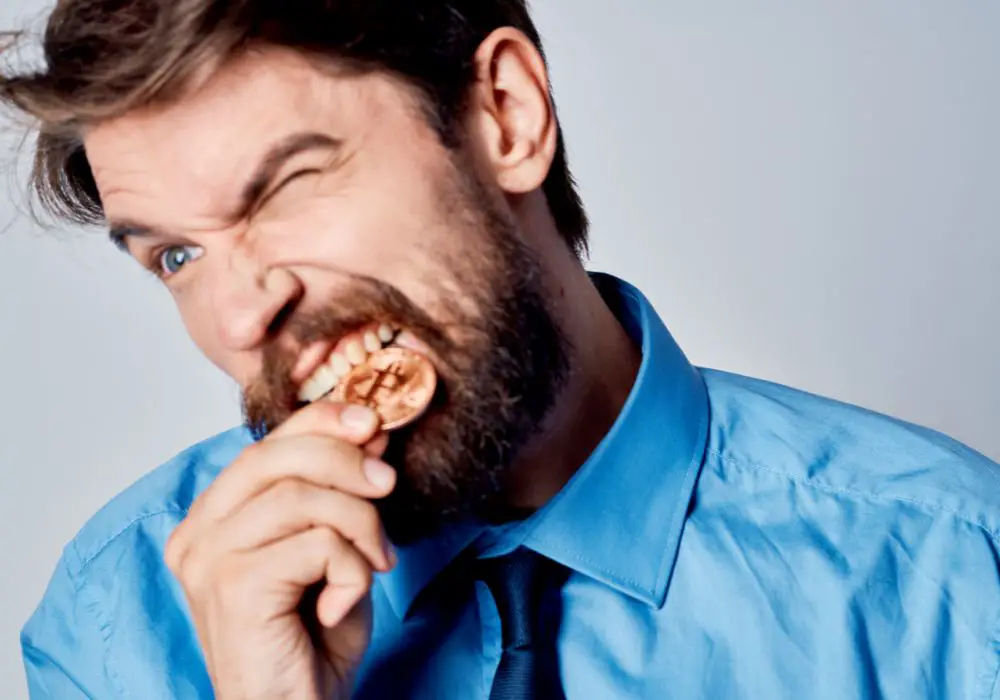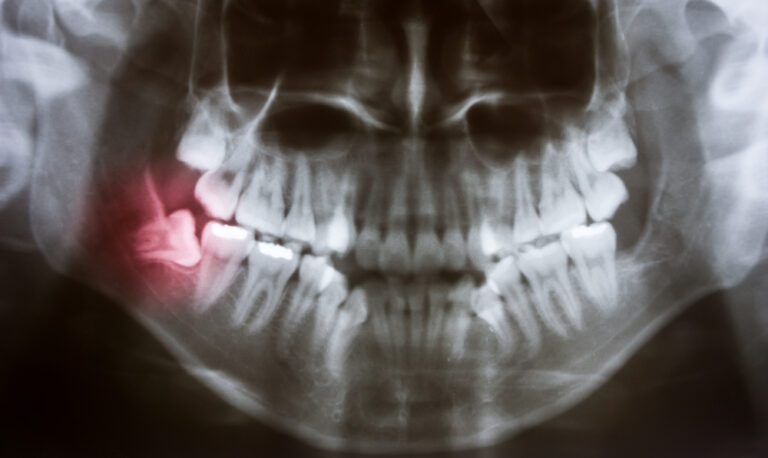Are teeth supposed to touch when you bite? It’s a question that many people have asked themselves at some point in their lives. The answer is yes, your teeth are supposed to touch when you bite down. However, the way your teeth should touch depends on a few factors.
Ideally, your molars should do most of the heavy work when you’re biting down. They are the strongest teeth in your mouth, and they are designed to grind and crush food. When you’re resting, your molars should lightly touch. Your front teeth, on the other hand, are better suited for tearing food. It’s important to use the right teeth for the right job to avoid damaging your teeth and causing unnecessary wear and tear. In this article, we’ll discuss the different types of bites and what you can do to ensure that your teeth are working together properly.
Understanding the Basics of Biting
When it comes to biting, it is important to understand the basics of how your teeth should come together. In this section, we will discuss the role of teeth and what constitutes an ideal bite.
The Role of Teeth
Your teeth are designed to help you chew and break down food so that it can be easily swallowed and digested. Your front teeth are responsible for biting into food, while your back teeth (molars) are responsible for grinding and crushing food.
The Ideal Bite
An ideal bite is when your teeth come together in a way that allows for optimal chewing and digestion. Here are some characteristics of an ideal bite:
- Your front teeth should not touch when you are chewing. They should only come into contact when you are swallowing.
- Your back teeth should come together evenly on both sides of your mouth, allowing for efficient grinding and crushing of food.
- Your upper teeth should slightly overlap your lower teeth, creating a slight overbite.
- Your teeth should be straight and properly aligned, with no crowding or gaps.
If you have an improper bite, it can lead to problems such as difficulty chewing, jaw pain, and even tooth damage. If you are experiencing any of these issues, it is important to consult with a dentist or orthodontist to determine the best course of treatment.
In summary, understanding the basics of biting is essential for maintaining good oral health and preventing dental problems. By ensuring that your teeth come together properly when you bite, you can enjoy optimal chewing and digestion, and avoid any potential issues down the line.
Common Misconceptions About Biting

When it comes to biting, there are many misconceptions that can lead to confusion. Here are a few common misconceptions about biting:
Misconception #1: Your teeth should not touch when biting
Many people believe that their teeth should not touch when biting, but this is not true. In fact, your teeth should touch when biting to ensure that you are properly chewing your food. However, it is important to note that your teeth should not be grinding or clenching together when you are not eating.
Misconception #2: Overbite is the only type of misalignment
While overbite is a common type of misalignment, there are several other types that can affect your bite. Some of the most common types of misalignments include crossbite, underbite, and open bite. It is important to identify the type of misalignment you have in order to properly address it.
Misconception #3: Biting down hard is necessary for a good bite
Many people believe that biting down hard is necessary for a good bite, but this is not true. In fact, biting down too hard can cause damage to your teeth and jaw. It is important to find a balance between biting down enough to properly chew your food and not biting down too hard.
Misconception #4: Misalignments don’t need to be addressed
Some people believe that misalignments are not a big deal and do not need to be addressed. However, misalignments can lead to a variety of issues including jaw pain, headaches, and difficulty chewing. It is important to address misalignments to prevent these issues from occurring.
By understanding these common misconceptions about biting, you can better understand how to properly care for your teeth and address any misalignments you may have.
Effects of Incorrect Biting
When you bite down, your teeth should come together in a specific way. If your teeth don’t meet properly, it can cause a variety of problems. Here are some effects of incorrect biting.
On Oral Health
- Tooth Damage: When you bite with the wrong teeth, it can cause damage to your teeth. This can lead to chips, cracks, and even fractures.
- Gum Damage: Incorrect biting can also damage your gums. If your teeth hit your gums too hard, it can cause them to recede, exposing the roots of your teeth.
- Tooth Sensitivity: Biting with the wrong teeth can also cause tooth sensitivity. This is because the enamel on your teeth can wear away, exposing the sensitive dentin underneath.
On Overall Health
- Jaw Pain: Incorrect biting can put a lot of pressure on your jaw joint. This can cause pain and discomfort, and can even lead to temporomandibular joint disorder (TMJ).
- Headaches: Biting with the wrong teeth can also cause headaches. This is because the muscles in your face and head have to work harder to compensate for the incorrect bite.
- Neck Pain: If your bite is incorrect, it can also cause neck pain. This is because the muscles in your neck have to work harder to support your head.
It’s important to make sure that your teeth are coming together properly when you bite down. If you’re experiencing any of these effects, it may be time to see a dentist or orthodontist. They can help you determine the cause of your incorrect bite and recommend treatment options.
Rectifying Biting Issues

If you are experiencing pain or discomfort while biting down, it could be a sign that you have a bad bite. Fortunately, there are several ways to rectify this issue. In this section, we will discuss two main solutions to fix biting issues: orthodontic solutions and lifestyle changes.
Orthodontic Solutions
Orthodontic treatment is a common solution for correcting biting issues. Your orthodontist may recommend braces or Invisalign to help align your teeth and improve your bite. These treatments work by applying pressure to your teeth over time, gradually moving them into the correct position.
In some cases, your orthodontist may recommend other appliances such as retainers or expanders to help correct your bite. These appliances work by gently shifting your teeth and jaw into the correct alignment.
Lifestyle Changes
In addition to orthodontic treatment, there are several lifestyle changes you can make to help improve your bite. Here are a few tips to keep in mind:
- Chew your food slowly and carefully, taking small bites to avoid putting excessive pressure on your teeth.
- Avoid biting down on hard objects such as pens, pencils, or ice.
- Practice good oral hygiene by brushing and flossing regularly to keep your teeth and gums healthy.
- If you grind your teeth at night, talk to your dentist about getting a mouthguard to protect your teeth.
By following these tips and working with your orthodontist, you can improve your bite and enjoy a healthier, more comfortable smile.
Preventing Improper Biting
Having an improper bite can lead to dental problems such as misaligned teeth, jaw pain, and difficulty chewing. Here are some ways to prevent improper biting:
Regular Dental Check-ups
Regular dental check-ups are important for maintaining good oral health and preventing dental problems. During a dental check-up, your dentist will examine your teeth and bite to check for any issues. They may recommend treatment such as braces or bite blocks to correct any problems.
Proper Oral Hygiene
Proper oral hygiene is essential for preventing dental problems and maintaining good oral health. Brush your teeth twice a day with fluoride toothpaste, floss daily, and use mouthwash to kill bacteria that can cause dental problems. In addition, avoid chewing on hard objects such as ice or pens, which can damage your teeth and lead to an improper bite.
By following these tips, you can prevent improper biting and maintain good oral health. Remember to visit your dentist regularly and practice proper oral hygiene to keep your teeth and bite healthy.
Frequently Asked Questions
Do all teeth touch when biting?
No, not all teeth touch when biting. Ideally, your molars should do most of the heavy work when biting, while your incisors and front teeth are used to tear food. However, if your bite is misaligned, it may cause certain teeth to touch more than others.
What is the ideal teeth bite?
The ideal teeth bite is when your molars do most of the chewing work, and your front teeth are used to tear food. When resting, your molars should lightly touch, and your lips should be relaxed.
Should back teeth touch when mouth is closed?
When resting or sleeping, ideally your upper and lower teeth should not touch, not even your molars. The upper teeth should overlap the lower ones, and the upper molar cusps should stay between two lower molars. The tongue should touch the back of the upper front teeth.
How many teeth should touch when biting?
When biting, ideally, only a few teeth should touch. It is recommended that you use your molars to do most of the heavy work, and your front teeth to tear food.
What should a correct bite feel like?
A correct bite should feel comfortable and not cause any discomfort or pain. When biting down, your teeth should fit together like puzzle pieces, with no crowding or overlapping.
Why do my teeth not touch when I bite down?
If your teeth do not touch when you bite down, it may be due to misaligned teeth or a misaligned jaw. It is recommended that you consult with a dentist or orthodontist to determine the cause and potential treatment options.







